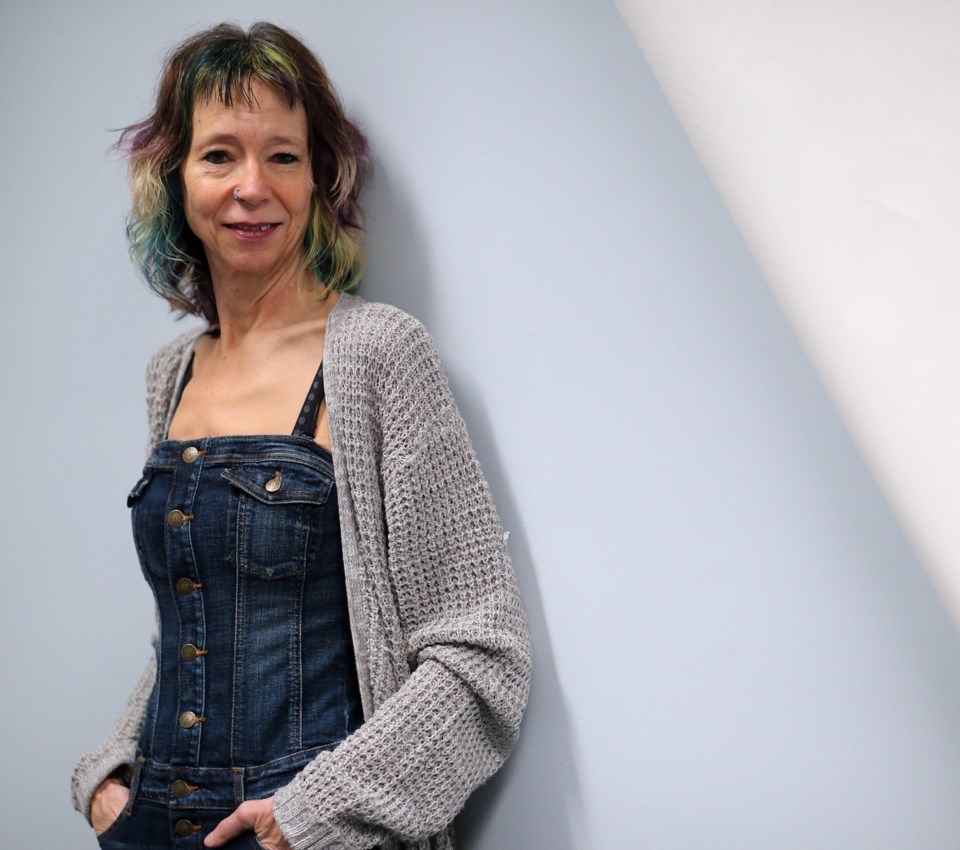Sally Chaster began her struggle with anorexia nearly five decades ago, when she was only six, and was hospitalized for three months.
Now 55, Chaster says ever since that first crisis, she has faced a daily struggle — not just dealing with her mental illness but with the misunderstandings of others.
“Even at my thinnest, when my weight was shockingly low, people approached me to ask how I stayed so thin,” she said. “I would just say to them, ‘I have a deadly eating disorder and I’m starving myself.’”
Chaster’s last crisis, or relapse as she calls them, occurred in 2007 and she has been unable to return to work. Previously a senior policy official with the public service, she is now working hard to develop a peer-support group for anorexics. The group’s first meeting is on Jan. 19 at Royal Jubilee Hospital.
She said peer support is recognized as crucial to successful therapy. Even the Mental Health Commission of Canada has recognized peer support as an “essential component of mental-health services.”
Chaster sees peer support not as an adjunct or extra to treatment, but as an essential “pillar” of recovery.
“Peer support becomes a very empowering sort of activity.” she said. “It’s part of the therapeutic process.”
Eating disorders including anorexia, binge eating and bulimia — eating and deliberately throwing up — are all now defined and recognized in the psychiatric literature as diagnosable mental illnesses.
Keva Glynn, director of mental health and substance abuse with Island Health, said about 3,000 people on Vancouver Island have been diagnosed with an eating disorder.
But Glynn also said it’s believed at least 10,000 people on the Island are exhibiting symptoms of an eating disorder but have not yet been diagnosed.
She said it’s estimated that 1.5 per cent of the population has an eating disorder and 10 to 15 per cent of those are males.
Of all the recognized and diagnosable mental disorders, anorexia is the deadliest, she said: 10 per cent of patients with the disorder die within 10 years of the onset.
She said Island Health teamed up last year with the Ministry of Children and Family Development, which already operates the provincial Eating Disorder Program, to develop a three-year medical plan to deal with eating disorders.
“I am really proud of what we have accomplished,” said Glynn.
One of the first moves by Island Health was to create two emergency beds at Royal Jubilee Hospital dedicated to patients with eating disorders.
Those with anorexia can starve themselves to the point where they require hospitalization.
Island Health has also educated 100 nurses, mental health councillors, social workers and dietitians on how to recognize, diagnose and treat eating disorders, on an out-patient basis.
A team of experts, including one psychiatrist specializing in the field, meets monthly via a teleconference call to discuss cases.
A patient/family advisory committee, on which Chaster serves, was also established.
Glynn said the establishment of a peer-support group is an essential part of ongoing treatment.
The one established by Chaster will not be based on the 12-step program, patterned after Alcoholics Anonymous. Anorexics and Bulimics Anonymous already has a group in Victoria.
Chaster and Glynn also stressed that peer support is not a replacement for treatment by a mental-health practitioner.
Chaster said one of her first questions for any newcomers to the support group will be whether they have been in contact with the Eating Disorder Program.
The group will operate without a clinician present, with members sharing experiences and coping mechanisms.
Eating disorders can be tied up with other mental-health issues, including anxiety, depression and suicidal urges, so a place to talk with others who understand can come as a huge relief for people with the illness, Chaster said.
“You take that cauldron of emotions and difficulties going on and different people will find different ways of parsing it and pulling out the pieces,” she said.
“If they are able to find a place where they can be heard without judgment and with empathy, people will start saying things like ‘I experienced that and when I did, here are the strategies I used.’ ”
The peer-support group for adults with eating disorders begins Jan. 19 at 6:30 p.m. in Rm. C201 of Royal Jubilee Hospital.



